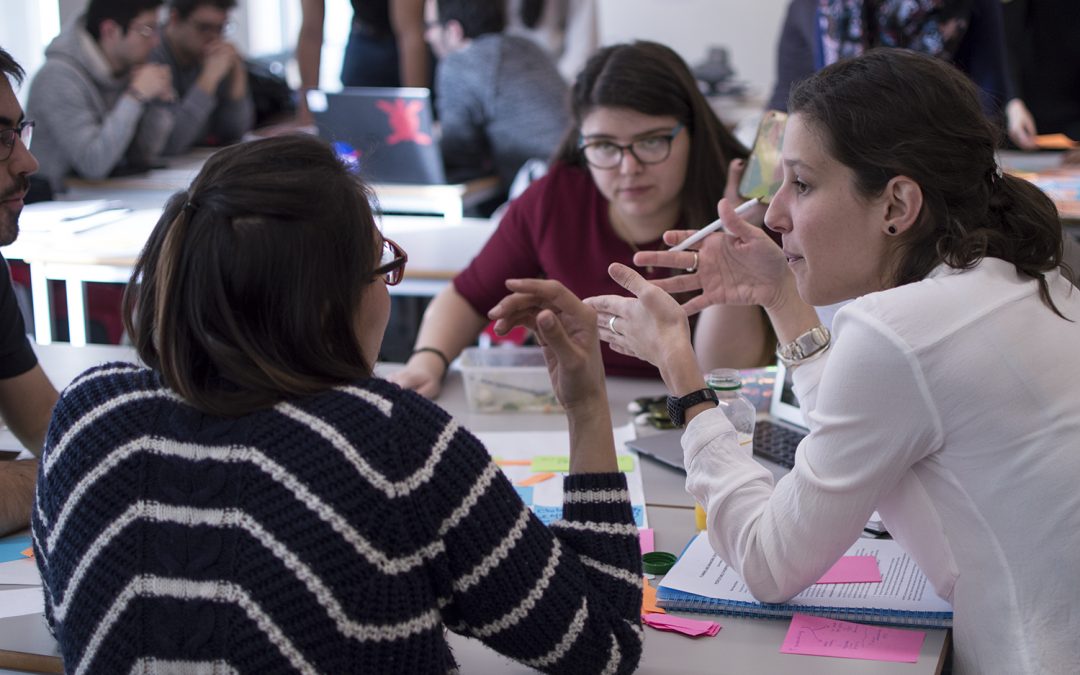
Rural governments in Indonesia should be responsible for local poverty
Muhammad Zulfikar Rakhmat, PhD researcher, Politics, The University of Manchester
Poor communities in rural areas of Indonesia should not solely be the responsibility of the central and regional governments but the rural governments which receive significant amount of rural funds.
read more…

Prof Diana Mitlin presents evidence to Select Committee on overseas development assistance
Prof Diana Mitlin was invited to present evidence to the International Development Select Committee on the changing nature of UK aid. read more…

Oxfam Sex Scandal: (In)human(e)itarianism and the hypersexualised “adultification” of black girls
Edward Ademolu, PhD Researcher, Global Development Institute
The torrent of recent (and on-going) revelations of sexual exploitation by representatives of British humanitarian aid organisations in Haiti and South Sudan, has imbued an almost irreconcilable sensation – an uncomfortable cognitive dissonance – within the public consciousness: that seemingly reputable charities like Oxfam are implicated and woefully complicit in the maltreatment of the very communities they are meant to help.
Muddied are our already-warped romanticisms of said organisations as institutional deities, as some kind of holy-oil-anointed lamp bearers of Florence Nightingale’s approbation – illuminating the darkened and often shameful transgressions of the world. Further perplexing, is why it has taken until now for reporting of this abuse and those inculpated, like Oxfam’s Haiti director Roland Van Hauwermeiren to submit to public and parliamentary scrutiny. read more…

David Hulme & Uma Kothari in Melbourne for new geographies of global inequalities and social justice
Alumni and the public in Melbourne, Australia are invited to the opening plenary of a conference at the University of Melbourne.

Fieldwork: understanding the role of human resources in complex multinationals
MSc Human Resource Management (International Development) is a practical introduction to the philosophy, values, policies and practices of human resource management in the context of developing or transitional countries. Students take part in fieldwork – visiting companies and contexts – to deepen their understanding of theory by seeing it in practice.

Why the economics of water is so hard
The Future Dams Research Consortium (originally known as DAMS 2.0) hosted a public lecture by Prof Michael Hanemann of Arizona State University on the economics of water.
The lecture discussed ‘why the economics of water is so hard’ providing a historical and contemporary US overview of the issues that make water challenging to price.

Pablo Yanguas on the banality of certainty
Dr Pablo Yanguas is author of Why We Lie About Aid and a research fellow with the Effective States and Inclusive Development Research Centre (ESID) at the University of Manchester.
In this extract from Why We Lie About Aid, Pablo Yanguas dissects the logic of ‘Value for Money’ in the development sector, a logic which forces foreign aid agencies to choose between irrelevance and subterfuge.
Value for Money (VfM) sounds eminently reasonable. It represents the kind of due diligence we expect from modern liberal states: accountability to taxpayers’ demands that governments keep an eye on how public funds are spent, assurance that these funds are, in fact, employed for their stated purposes, and transparent management of public funds are all necessary for avoiding corruption and waste. In that light, VfM is not only reasonable but perhaps even morally desirable.
However, not all areas of public policy are equally amenable to the same calculations and standards of proof. When procuring bricks to build a school, for instance, we can easily compare the costs and estimates of different providers in order to choose the most economic, efficient, effective, and cost-effective option. As we move to less tangible goals, however, the simple logic of VfM begins to unravel, and at a certain point the demand for hard evidence does not necessarily lead to accountability. And, as we know, many development assistance goals are of the less tangible variety. read more…

International Women’s Day 2018: taking aim at the patriarchy.
For all the gains made for and by women in academia, equal pay, under-representation, stereotypes, tokenism or imposter syndrome mean that there is still a long way to go. For International Women’s Day 2018 we’ve highlighted some of the papers that female academics at both the Global Development Institute and the Effective States and Inclusive Development research centre have produced over recent years and demonstrate that women’s research isn’t just about gender.

The Global Development Institute is Hiring
We have big ambitions at the GDI and to make them happen, we need the best research and teaching staff. If you have an outstanding track record and a commitment to social justice, then please come and join us.
Click on the job titles for more information:
Research Associate (DAMS- Social Sciences/Impacts)
1 April 2018 to 30 September 2019. Closing date: 29/03/2018
Research Associate (DAMS – Economics)
1 April 2018 to 1 April 2018 to 31 March 2020. Closing date: 30/03/2018
Research Associate (DAMS – Politics)
1 April 2018 to 1 April 2018 to 31 March 2020. Closing date: 30/03/2018
The University of Manchester Presidential Academic Fellowship: Industry 4.0 (School of Environment, Education and Development)
Permanent from September 2018. Closing date: 03/04/2018

The do’s and don’ts of participatory urban planning
Suzette van der Walt
A diverse group of students, community leaders and NGO representatives and academics recently came together at the University of Johannesburg to develop the ‘codes of engagement’; a short practical guide on participatory urban planning
The main aim of the workshop was to develop a series of principles and strategies with which future socio-technical practitioners could engage in developing urban planning that support the University of Johannesburg’s Graduate School of Architecture’s ‘Alternative Practice’ Module. Spatial design and engagement agency 1to1 has been working on developing these strategies over the last few years and were very resourceful and valuable in the design of this workshop along with critical designer, Orli Setton.
